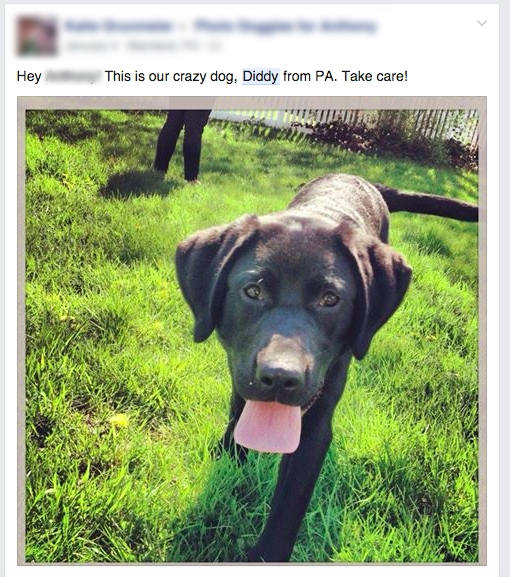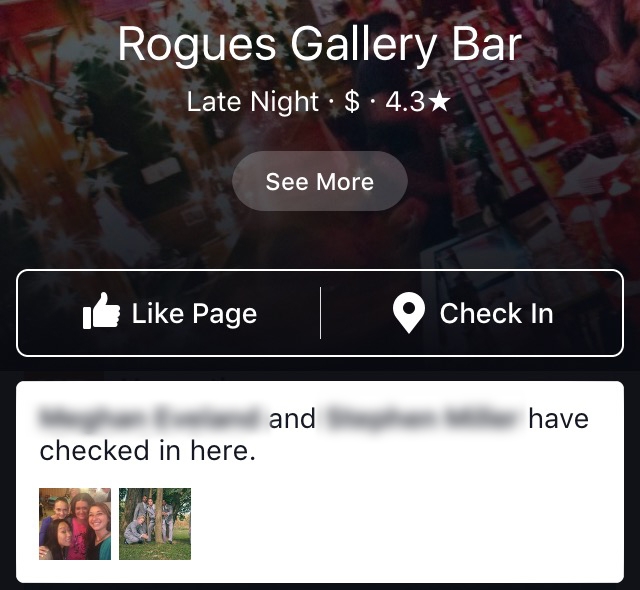Yes; you read that correctly. Facebook can answer many of your questions better than Google. The real question is when will it?
How can Facebook beat Google in Search?
While “Big G” dominates informational search and probably always will, Facebook is quietly updating its search algorithm to take advantage of its priceless user-generated-data set. The completeness of this information and its state of being perpetually up-to-date, along with industry advances in semantic search will all come together to enable Facebook to own contextual search in a way that Google can’t .
“Contextual Search: optimized web-based search results based on circumstances provided by the user and the computer being used to enter the query.”
Consider the proprietary information to which Facebook has access. Each social post includes explicit data like time, location, mood, and topic. These context clues can be layered on top of the user’s social graph as well as their interaction history with other Facebook content. This strategy will give the platform question-answering abilities that are unrivaled in personalization and relevance. It’s already better than your best friend at remembering birthdays; more sapience is on the way.
Imagine having an assistant who went to every party you went to, read every article or book you read, and has been in contact with your social circle more than you have. They could answer questions about your life better than you could. “Personal assistant” type abilities will be possible because of Facebook’s data completeness (depth) and the service’s ubiquity (breadth).
On the largest scale ever, Facebook has access to the information needed to function as both an augmented personal memory and omniscient social observer.
But wait... what about privacy?
Let me remind you that we need official prohibitions to get people to leave their selfie sticks at home, servers have to reheat food because we take too many Instagram pics before taking a bite, and 27% of drivers can’t stop themselves from checking their newsfeed while behind the wheel. Our actions belie our priorities.
Over the last decade, “oversharing” seems to have had a perpetually sliding baseline. According to Mr. Zuckerberg himself, the expectation of privacy is a dying social norm. We used to think it was preposterous to share our location; now we do it without batting an eye.
So will this continue? I think so. The psychosocial forces that erase concerns over privacy are real: FOMO, the younger generations’ comfort with sharing, and subtle data harvesting strategies all erode our exposure anxiety. Notably, as Facebook Graph Search becomes a more helpful utility, sharing the details of your life becomes a self-reinforcing act; the more you share, the better answers you’ll get.
Here’s my list of questions that you’ll eventually turn to Facebook for answers to:
1. What was the name of the restaurant I went to on my trip to Florence?
Your feed -> posts from location: Florence - > posts related to food/eating -> restaurants located at the lat/long of those posts.
We all love to get and give recommendations. We also like to share common experiences. A search like this would give you the name and location to share with your friends who are planning a trip. This information is easy for Facebook to retrieve as long as it understands your question.
2. I want to recreate my parent’s wedding day for their anniversary, can you show me what it was like?
Your parents’ and their relatives’ feeds and timelines -> timeline event that includes “wedding” or “anniversary” - or - posts near your mom’s name change -> posts that include the words “congratulations” and “love” - or- posts related to a Facebook event or hashtag for the wedding.
Flowers,
dresses, venues, hairstyles, weather — you can recreate an event down
to the scripts of the toasts. Facebook Graph Search should be able to
scrape your parents’ and their friends and families’ feeds for all of
this information. We tell Facebook who our relatives are and we tell it
when special events occurred, even in the past. Recently, couples are
starting to use event-specific hashtags for their big day. We are making
this easy.
3. I want to dress up as Pied Piper for Halloween. Were any of my friends dressed as this last year?
Your friends’ feeds -> posts on or around October 31st -or- posts that include the words “halloween” or “costume” -> posts that reference “pied piper,” “silicon valley,” or “hooli.”
We love special events and want to feel unique. Facebook can certainly help us rule out things our friends have already done/worn/used. This same type of reasoning could be used to make sure you don’t wear the same dress to the prom as an older sibling (that is literally soooo last season), or make sure you don’t use the same song that your rival team used in a softball slideshow. Image and sound recognition will help a lot here.
4. What sports teams are good to talk to Sean about?
Sean’s feed -> posts about sports teams or athletes -> mood context of posts
Again, I think this is a pretty easy query to answer and one that you could easily determine with a quick scroll through Sean’s feed. The most important thing is to get the mood correct which Facebook often suggests anyway. Similar queries could be answered like what magazines does Sean read, what hobbies does Sean have, where does Sean like to vacation? . . .
5. Do any of my college friends still live in Williamsburg?
My friends list -> people who graduated within 4 years of me from my alma mater -> current city is Williamsburg
Not hard, right? This type of information is really already available in Facebook search, you just can’t ask it in this way. Here’s where semantic understanding will make Facebook Graph Search even more helpful.
6. What is Kierston’s dog’s name?
Kierston’s feed -> posts about or pictures of dogs -> most common dog -> Proper names in posts other than “Kierston”
<a href="www.facebook.com="" faceb...<="" a="">Still not too hard. I tried this reasoning manually on a friend’s feed and found this picture of “Diddy.” You may also want to check out this sporting dog list according to Article Insider.

7. What does Kasey want for Christmas?
Kasey’s feed -> posts tagged with #want -or- including the word “want” -and- product pages and brand posts Kasey has liked or clicked on in the last few months.
Facebook should be really good at telling us what our friends would like for a gift. Every time we interact with a product ad or page we are basically sending in information on our interests. There could be some interesting sorting and crossover in this category. For example maybe Kasey likes calendars and Tom Daley. What should Facebook suggest?
Don’t forget the obvious benefit for Facebook from adding this utility. Providing a list of suggested gift links would provide some serious affiliate kickback$.
8. Which gym do most of my friends belong to?
Friends’ feeds -> check-ins at businesses: gyms -> location with most friend check-ins
There are five or six gyms near me and it was a pain to figure out which one I could go to with friends. Facebook could easily scrape my friends’ feeds for check-ins at local gyms and point me towards one where my friends seem to congregate.

I get this notice anytime I’m near a Planet Fitness. It’s not showing me who is there, or if anyone I know is a regular.

Sometimes Facebook gives you a list of friends who have checked-in at a location. This is much closer to the kind of answer I want.
9. What percentage of my friends are married?
Friends’ “about” information -> relationship status -> percentage of all
Facebook could absolutely do this right now, but there isn’t a survey style search available yet. You could add lots of qualifiers to a search to modify it by age, relation to you, and depending on privacy allowances, status of non-friends by location etc. As Facebook scoops up more and more users, these types of search will make social research much easier.
10. Who did I get the flu from?
Friends’ feeds -> posts, checkins, or events that share a location with posts, checkins, or events on your feed -> posts from the resulting list of friends during the last 2 weeks -> posts that mention sickness, feeling bad
Kinda gross, right? This isn’t too useful of a search but is certainly something that would be nice to know. I’ve gotten sick many times and wondered how, but I don’t make a habit of tracking down the health history of everyone I know. Similar searches in this vein could be, “Did anyone else at the event get food poisoning afterward?” or “What did I eat right before I got sick?” All of a sudden those food posts seem less annoying and more utilitarian.
Who gave you the flu? Facebook will tell you.
11. Who performed at the Kimmel Center tonight?
All public posts-> posts that mention the Kimmel Center -or- posts originating from that location -> posts from tonight
The other night I was walking by a famous, Philadelphia performance venue and there was a crowd of people behind the building cheering around two tour buses. Something notable was happening in a public space, but I could not get realtime results as to what it was. Surely, many of the spectators were tagging photos and checking in at the location, but Facebook search was not able to answer my question, yet.
Sidenote: Could Google answer this? Possibly yes, if the Kimmel Center kept a well organized performance schedule online. But Google wouldn’t have been able to show me photos from seconds ago, or what was happening behind the building like Facebook could have. Facebook could also have let me know if someone I know was in the crowd -- let’s see Google do that.
12. Why is there so much traffic on I-95 North?
All public posts -> posts located along or mentioning this route -> prioritize posts from police/fire/PENNDOT -> posts that mention “traffic,” “accident,” “construction,” “police”
You don’t need a helicopter anymore to see over the horizon. People will post when novel things happen, and a traffic accident or downed tree is definitely post-worthy. As a more authoritative source, police and other municipal entities frequently post useful information like this to their Facebook pages. Many social media users post everything they encounter, so it’s reasonable to assume a traffic jam would make the cut.

13. Why is there smoke on the horizon?
Public posts -> posts within 5 miles of me -> posts that mention “fire” “smoke” “explosion” “burn”
This is where the omniscient observer effect starts to come into play. Because Facebook has so much access to instantaneous data, it can provide answers to highly contextual questions like this.
Have I convinced you that Google should be a little scared?
Facebook is poised to be a major competitor in the search game. Over the last few years they have not hidden that they want to be a device-agnostic, full featured ecosystem. We all seem to forget about Facebook Home and ignore Facebook M, but they’re coming. The trick, which they seem to have figured out, is to take it slowly so that they can morph their public perception away from social network and towards ecosystem without confusing users or tipping off competitors.
What questions do you think Facebook will be able to answer in the future? What questions do you want it to answer? Let me know in the comments section below!
